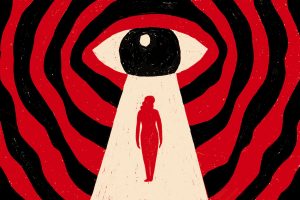
Julia holds an important role in both parts two and three of 1984, and though she further drives Winston’s rebellious acts and thoughts, that is essentially her sole purpose. She is the embodiment of sexual freedom and desire, which is shunned in the eyes of Big Brother. This is applies even if you are married to someone, as described on page 87:
“Even to have awakened Katharine, if he could have achieved it, would have been like a seduction, although she was his wife” (Orwell).
Chastity is upheld by Big Brother, and all of the women in the Party proudly take part in this. Julia is the exception because she pretends to uphold those values. Though there is freedom in Julia’s pursuit of sexual acts, in the end that is the only thing that Winston appears to use her for. His feelings are more surface level than he believes them to be, as he is attracted to her and what she represents:
“A kind of fever seized him at the thought that he might lose her, the white youthful body might slip away from him” (Orwell 138).
She also does not seem to understand the need to preserve history, and she does not seem to want to delve deeper into understanding the nature of things. In doing this, she still plays into the stereotype that women have no interest in thinking for themselves:
“‘I’m not interested in the next generation, dear. I’m interested in US.’
‘You’re only a rebel from the waist downwards,’ he told her. She thought this brilliantly witty and flung her arms around him in delight” (Orwell 196).
Julia is put into a box and shown as a sort of surface level character that is only made useful in the plot by offering something that Winston desires. This is very reflective of stereotypes that are still associated with women today, as the male gaze is still very present in various kinds of media. As I read Sandra Newman’s Julia I am looking forward to gaining a more in depth understanding of Julia’s character, and seeing the unused potential she has in 1984.